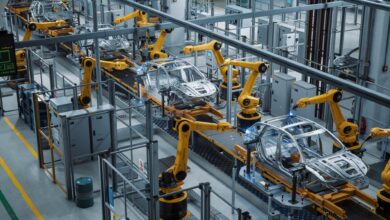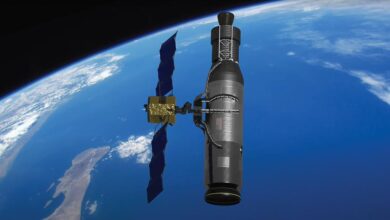Carbon Robotics: 2024 CNBC Disruptor 50

Founder: Paul Mikesell (CEO)
Launched: 2018
Headquarters: Seattle, Washington
Funding: $85 million
Valuation: N/A
Key technologies: Artificial intelligence, deep neural networks/deep learning, explainable AI, machine learning, robotics
Industry: Agriculture
Previous appearances on Disruptor 50 List: 0
Agriculture is one of the most important sectors in the history of the world, and as one of the oldest, it’s also proven to be one of the hardest to disrupt in recent years. But AI as part of agtech is aiming at the farm, backed by both VC investors and existing machinery giants like Deere.
Carbon Robotics is a pioneer in AI-powered agricultural robotics designed to help farmers cut costs, boost production and improve crop yield. It’s best known for the LaserWeeder – which made a recent appearance on “NBC Nightly News” – which combines AI deep learning, computer vision, robotics and lasers to eliminate weeds down to a millimeter level of accuracy.
In a sign of how the ties between the deepest players in the field of artificial intelligence and other sectors of the economy are growing, Nvidia just announced a venture investment in Carbon Robotics in May.
The company says that it can save farmers up to 80% on weeding costs, a threat to the herbicide-agricultural complex of the past century synonymous with chemicals companies like Monsanto, Syngenta, and BASF. They are under increasing scrutiny for an approach to farming that has damaged the topsoil, left consumers with concerns about the chemicals in food, while using manufacturing processes that add to the industry’s carbon footprint.
The LaserWeeder has killed over four billion weeds to date and the company estimates it can do the work of 75 farm workers. Last year, the company says customers laser weeded for more than 50,000 total hours across more than 100 different crops.
If successful at scale, the LaserWeeder will play a role in the food that reaches the everyday consumer – Carbon Robotics is targeting commercial farms with 500-plus planted acres that are selling produce to supermarkets, farms that are looking to cut costs and improve yields, and automate one of the worst jobs in the fields.
In an interview last year, CEO and founder Paul Mikesell explained how it works at a granular level: “We’re able to explode weed cell walls with a laser beam, right in the growth center of the weed, and that laser beam has no residue deposited; the organic weed matter will then turn into nutrients for the rest of the crops,” he told produce industry publisher AndNowUKnow.
In 2023, Carbon Robotics opened two new facilities: Carbon Robotics North and its Richland, Washington-based laser refurbishing and manufacturing facility, allowing the company to increase production rates — it says demand tripled year over year in 2023. It also just rolled out its latest tech in February, the Track LaserWeeder, a new model that extends its capabilities by operating on diverse soil types, including muck soil – a moist, organic, black soil good for root vegetables like carrots and onions and used in specialty crop production.
The company is also beginning to expand internationally, with the first 10 LaserWeeders for the Europe ag market shipped last year, and several already operational in Australia. Carbon Robotics has also added seven European languages to the LaserWeeder’s iPad operator app.
Agtech is one disruptive space where the need is clear and the logic is compelling, but the market has been difficult to budge – as evidenced by challenges faced in recent years by heavily funded former Disruptor Indigo Ag. Many breakthrough ideas remain in the very early days, such as 2023 Disruptor Monarch Tractor, as well as direct competitors FarmWise, Stout Industrial Technology and K.U.L.T.
The old guard is moving on the opportunity as well, with Deere acquiring several robotics companies including Bear Flag Robotics and Blue River Technology, and pushing forward with an aggressive plan to automate the farm by 2030.
To continue its growth, Carbon Robotics raised $43 million in new capital in 2023, just over half of the $80 million it has raised since its founding.
Sign up for our weekly, original newsletter that goes beyond the annual Disruptor 50 list, offering a closer look at list-making companies and their innovative founders.



